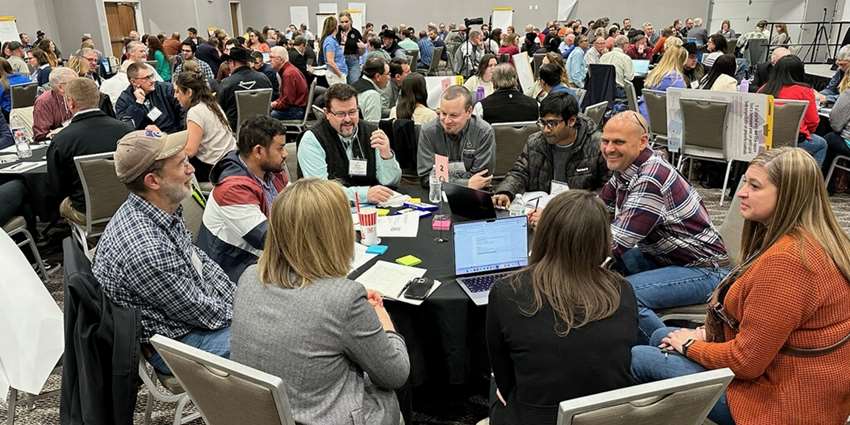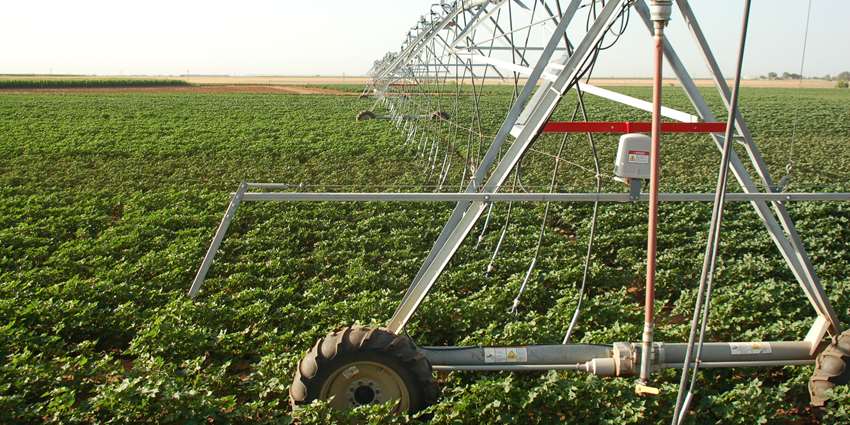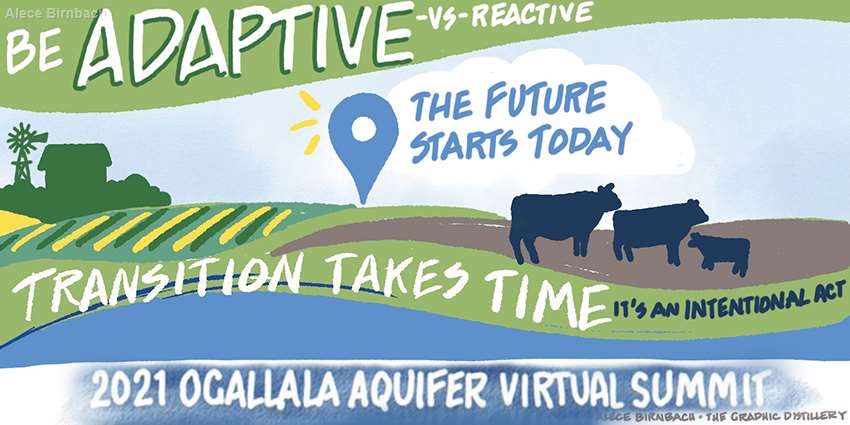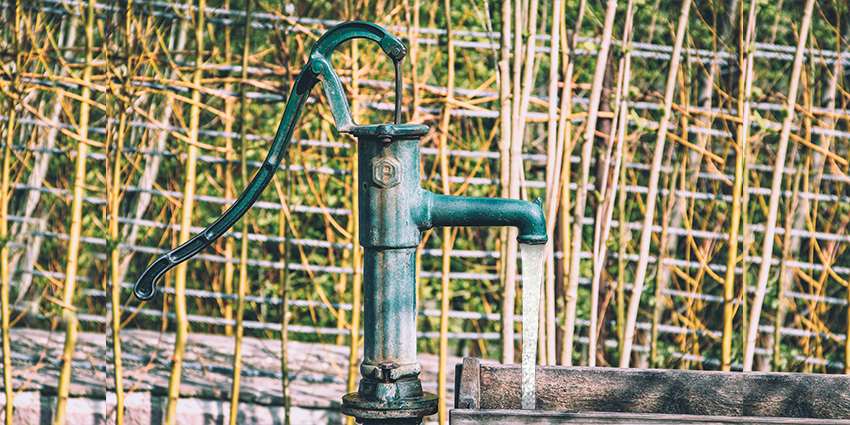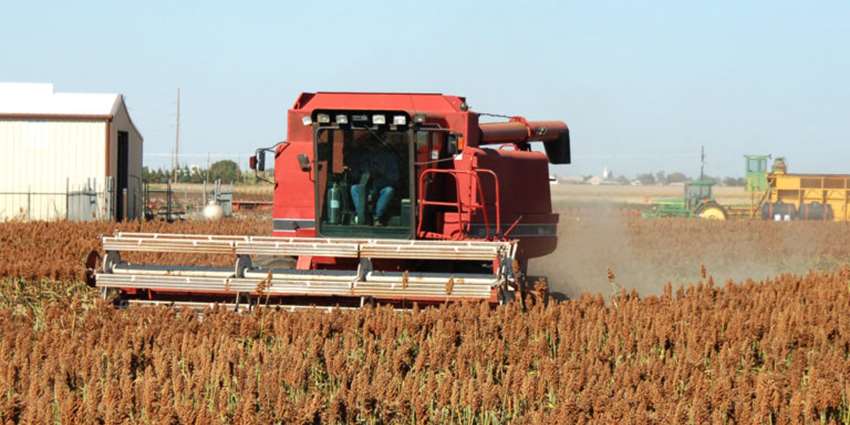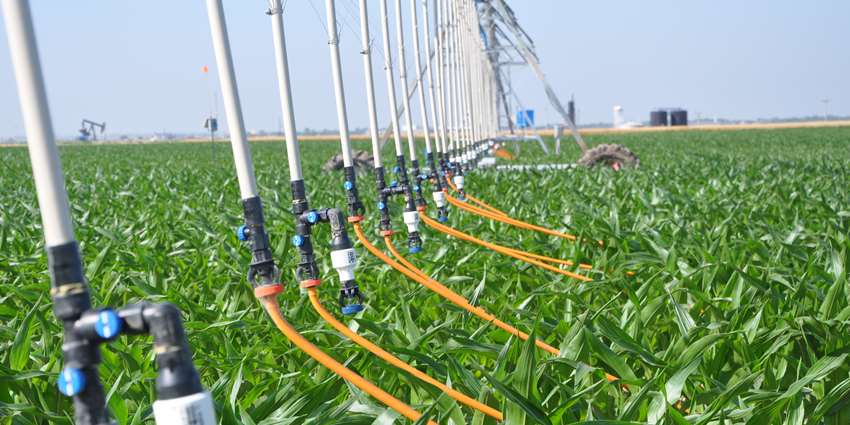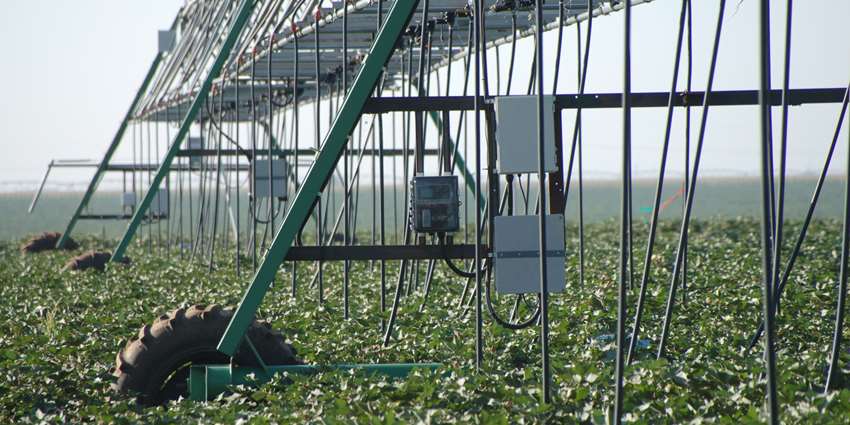Tag: Ogallala Aquifer Program
-
Ogallala Aquifer Summit brings together experts
Article originally written by Madison Pigg The 2024 Ogallala Aquifer Summit. (Photo by Kansas State University Research and Extension.) “Change is not necessary, but survival is not mandatory,” was a recurring theme at the 2024 Ogallala Aquifer Summit, leaving a big impression on many attendees. Scientists from the Texas Water Resources Institute (TWRI) and the Ogallala Aquifer…
-
Rangeland management is key to sustaining the Ogallala Aquifer
Article originally written by Cameron Castilaw Center pivot irrigation system. (Thomas Marek, Texas A&M AgriLife Research) Spanning from South Dakota to Texas, the Ogallala Aquifer is the largest freshwater aquifer in North America. But despite its size, the Ogallala is drying up. Scientists have reported for years that, if recharge and use continue at current rates,…
-
2021 Ogallala Aquifer Summit encourages a community-wide approach to tackle issues facing the aquifer
Article originally written by Ava English The Ogallala Aquifer is a massive underground reservoir that lies beneath much of the High Plains region. The aquifer extends 175,000 square miles across eight states, including parts of Colorado, Kansas, Nebraska, New Mexico, Oklahoma, South Dakota, Texas and Wyoming. In many instances, the aquifer is the main source…
-
POSTPONED: Ogallala Aquifer Summit to tackle tough ag water questions
Article originally written by Kerry Halladay Speakers will include water management leaders from all eight of the Ogallala Aquifer states: Colorado, Kansas, New Mexico, Nebraska, Oklahoma, Texas, South Dakota and Wyoming. Water stakeholders from those states are encouraged to attend. “The Ogallala Aquifer is hugely important, not just for Texas, but for an eight-state region,”…
-
TWRI program spotlight: Our groundwater projects
For the month of March, we are spotlighting our groundwater programs, which include the Texas Well Owner Network (TWON), the Ogallala Aquifer Program (OAP), the Ogallala Water Coordinated Agricultural Project (Ogallala Water CAP) and the Transboundary Water Portal. Texas Well Owner Network Helping to protect Texas’ groundwater resources, TWON has Well Informed screenings and Well Educated training courses offered by the Texas A&M AgriLife Extension Service…
-
Grain sorghum irrigation water-use efficiency dependent on weather conditions
Grain sorghum production is highly susceptible to changes in climatic conditions, more so than to different irrigation regiments a producer might implement on the crop, according to a Texas A&M AgriLife Research modeling study. The results of the study, “Simulation of efficient irrigation management strategies for grain sorghum production over different climate variability classes,” were…
-
New issue of txH2O highlights the Ogallala Aquifer center privot irrigation and more!
Did you know the Ogallala Aquifer is the largest source of fresh groundwater in North America? Or that two U.S. Department of Agriculture (USDA)-funded projects with almost 100 researchers are working to ensure that Ogallala water is used in the best way possible? The Texas Water Resources Institute recently published the Fall 2018 issue of…
-
Ogallala Aquifer Program research featured in journal
Article originally written by Kathy Wythe. The OAP, funded by the U.S. Department of Agriculture’s Agricultural Research Service (ARS), is a research-education consortium seeking solutions from problems arising from declining water availability from the Ogallala Aquifer in western Kansas and the Texas High Plains. The consortium is led by the ARS laboratories in Bushland and…
-
Ogallala Aquifer Program receives secretary’s honor award
The Ogallala Aquifer Program (OAP) received the U.S. Department of Agriculture (USDA) Secretary’s Honor Award in December 2013. The honor was given to OAP “for sustaining rural prosperity across the drought-prone Southern High Plains by finding solutions to problems from declining water availability for the Ogallala Aquifer,” the award stated. The program is composed of a research…

